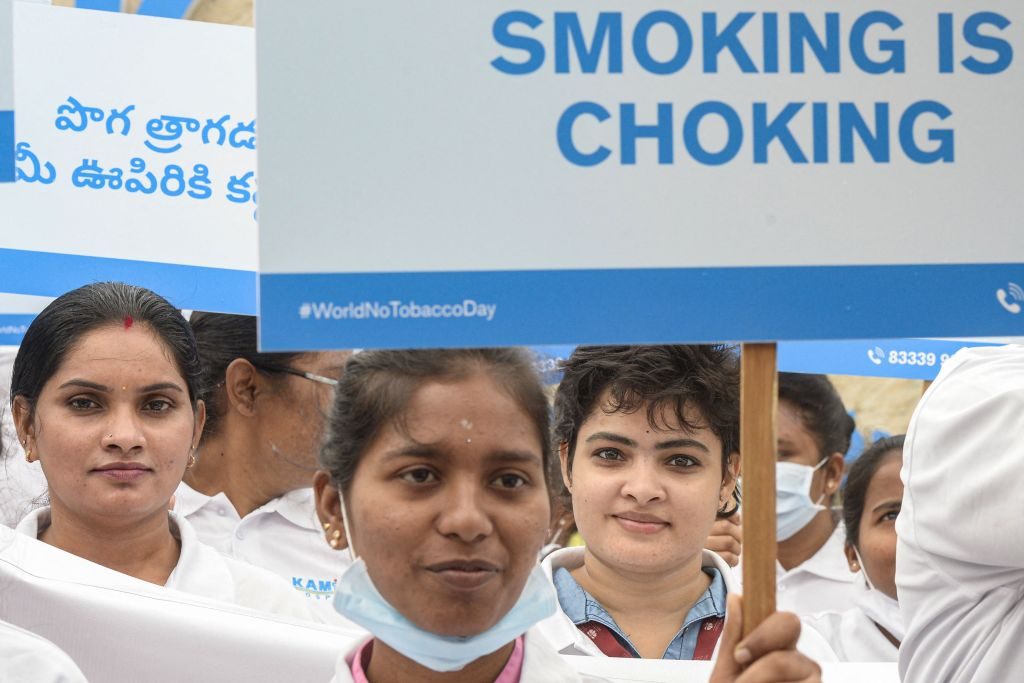President Joe Biden’s administration is planning remove nearly all nicotine from cigarettes sold in the U.S. in an attempt to get people to quit the habit.
The Food and Drug Administration (FDA) will propose a rule limiting nicotine in May 2023, according to the Wall Street Journal. The proposed rule “would establish a maximum nicotine level in cigarettes and certain finished tobacco products.”
The plan was revealed on Tuesday as part of the Biden administration’s “unified agenda,” which is a collection of planned federal regulations released biannually.
FDA Commissioner Robert Califf said in a statement:
Nicotine is powerfully addictive. Lowering nicotine levels to minimally addictive or non-addictive levels would decrease the likelihood that future generations of young people become addicted to cigarettes and help more currently addicted smokers to quit.
Roughly 12.5 percent of Americans were cigarette smokers in 2020, according to Center for Disease Control and Prevention (CDC) data. Nearly 480,000 Americans die of smoking-related causes annually, making cigarette deaths the number one preventable death in the country. An additional 7,300 nonsmokers die from lung cancer caused by second hand smoke.
Biden’s attempt to get Americans to stop smoking cigarettes is aligned with his cancer moonshot, where his administration plans to cut the cancer death rate by 50 percent over the next 25 years.

Medical students and staff from a hospital march during an awareness rally against the use of tobacco on World No Tobacco Day in Hyderabad on May 31, 2022. (NOAH SEELAM/AFP via Getty)
Although nicotine is the addictive substance found in cigarettes and does not directly cause cancer, Biden’s administration is hopeful the FDA regulation would limit the use of tobacco products that contain cancer-causing chemicals.
The Family Smoking Prevention and Tobacco Control Act of 2009 authorized the FDA to limit nicotine levels in cigarettes, provided scientific studies back the regulation.
Recent government-funded research found people smoke fewer cigarettes and are less dependent on them when they smoke cigarettes with lower nicotine levels.
In April, Biden joined a global trend and announced a proposal to ban menthol cigarettes, which make up a significant portion of cigarette sales.
UK ‘Sleepwalking into Prohibition’ Thanks to EU Ban on Menthol Cigarettes https://t.co/MtaXvi2JOW
— Breitbart London (@BreitbartLondon) May 20, 2020
Former Trump-era FDA chief Scott Gottlieb took small steps to limit nicotine in cigarettes, but former President Donald Trump’s administration dropped the plan when Gottlieb left the agency in 2019.
Proponents of nicotine reduction say it would save millions of lives and reduce the number of people who smoke cigarettes. However, opponents of the move believe the ban would open up a black market for cigarettes.
Large cigarette companies caution the science on low nicotine cigarettes is not conclusive and argue the real solution is to provide FDA-approved alternatives to traditional cigarettes currently on the market.
“We do actually support the overarching goal here, which is to transition smokers from cigarettes to smoke-free products,” said Murray Garnick, general counsel for Altria, one of the nation’s largest tobacco companies. “We just think that the better way is to create a robust market of FDA-authorized smoke-free products.”

COMMENTS
Please let us know if you're having issues with commenting.